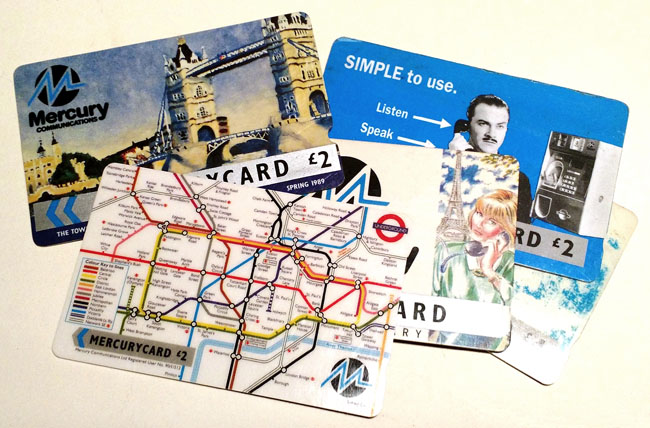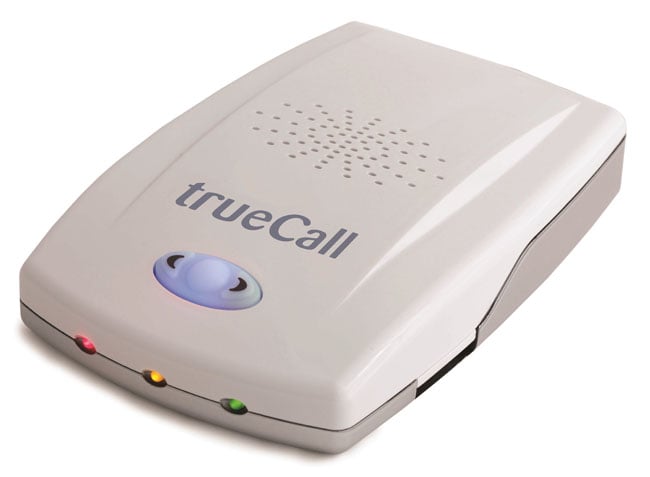Do we have any choice about paying for home phone numbers?

![]()
![]() 7
7
25 Jan 2015 at 10:00, Nigel Whitfield
Feature For a huge number of Brits, mobiles have become our primary way of communicating, even when we're at home. When a call comes in, we know it's ours. We can reply with a text, or use apps like WhatsApp to communicate with friends abroad. Increasingly, we don't rely on our landline phones and, thanks to lax policing of the Telephone Preference Service (TPS), for many of us, about the only thing they're used for is receiving unsolicited junk calls, or as a safety net so we can call 999 in an emergency.
And yet, a landline is largely impossible to avoid. Even if you have Virgin's cable broadband service, many of the bundle offers are only available if you take its phone line too, at a fairly pricey £16.99 per month. DSL customers don't have any choice at all, of course. Whether you use it or not, you'll have to pay for a package that includes a working line with dialtone.
Paying through the nose
How much you're paying for that facility is a bit of a sore point. While the wholesale line rental charged by BT's OpenReach division is actually falling at the moment, the charges that BT Retail levies have been creeping ever upwards.
Falling? Yes: until July last year, wholesale rental for a BT landline was £96.17 per year, plus VAT, then it fell to £91.05, and from 1st April this year it drops to £89.50. That makes the current cost per month £9.10 including VAT, and it will soon be £8.95. So how come millions of us end up paying almost £20 a month to BT?
One of the big reasons is the "weekend calls" deal that's now included with all BT packages, like it or not. If, like me, you don't make any qualifying calls, that's pretty annoying. The only thing plugged into my phone line is a burglar alarm, and I'd be happy to replace that with one that uses a SIM or broadband.
Bob Hoskins guilt-trips the nation into making weekend calls on BT landlines in the 1990s
You also have to watch out for BT's underhand tricks. For example, the "BT Privacy" option that registered you on the TPS and gave free caller ID was discontinued on my line last year. I never received a notification that this was happening, and only found out by viewing the online bill which had an extra charge for caller ID slipped in at £1.75 per month. Add the ridiculous surcharge of £4 for not paying by direct debit – when a BACS payment costs BT nothing to receive – and the total per quarter is £60.22.
Even if you take out the charge for caller ID, but still refuse to allow BT to raid your bank account, the cost of a BT line to carry your broadband is £18.32 per month. Or put another way, a markup of 101 per cent over the wholesale price. Even if you're foolish enough to allow a direct debit, it's still an 86 per cent markup.
Charging backwards
Charges for services like caller ID are particularly galling. This is is a built-in feature of a modern line card in the exchange, and costs nothing extra to provide. Having to pay for it is a little like a garage selling you a Ferrari, and then charging you extra to be able to drive it at more than 50 miles an hour.
BT has form for this sort of trick, though, to be fair, most telcos play similar games of "gouge the punter." On my old ISDN line, caller ID also used to include COLP (Connected Line Identification Presentation), a service that displayed the identity of the caller number – both are part of the signalling system of ISDN. So, for example dialling an 0845 number would reveal the actual number it routed to.
Not content with merely overpricing ISDN almost to the point of extinction, BT eventually separated COLP and charged extra for it. It's not, incidentally, just services built into the network such as call diversion that BT turns off and ransoms back to you.
The same, according to some ISPs I've spoken with, holds true for DSL services. It would likely be easier, they think, to issue a fixed IP address by default than to set up an infrastructure of DHCP servers, and then charge a monthly fee not to use them.
Lily Tomlin could well have been speaking about BT when she said "We don't care. We don’t have to. We're the phone company.”
So, what can we do?
Talk to people in the ISP or telecoms business, and all too often they'll tell you how they've spent ages patiently explaining to people what's possible, only for the other person to say "Great. I'll give BT a ring.”
Despite the passage of time since privatisation and the rise of competitors, a huge number of people simply go with the tried and tested BT name. And then there's old fashioned inertia. That's what kept my line with BT until the final straw of realising it was costing more than £20 a month.
I would expect that a huge proportion of Reg readers have taken advantage of Local Loop Unbundling (LLU) to get their broadband service from someone other than BT, but how many of you have done the same with your phone service?

Carrier preselection with Mercury phonecards
There have, over the years, been a number of ways in which you can save money on calls. The first alternative to BT was Cable and Wireless' Mercury, which you accessed by dialling the 131 prefix, and as other operators sprung up, and prefixes proliferated – Carrier Pre Selection, or CPS was born. That ensures that all calls over your line will automatically be routed via a different phone company. And while it will avoid some of the other nuisances of BT's charging, like the "call connection fee", you'd still be paying the rip-off line rental.
Thanks in part to the unbundling driven by broadband, you can now unbundle your phone service. Having that choice is what now forces OpenReach to publish the wholesale prices mentioned above.
How does that work? At its simplest, a company – which doesn't necessarily have to be the same as your ISP – can take over the line rental, and bill you for that, and bill you for the calls, with everything still travelling over the BT network. The difference is that they add their own markup to the wholesale prices, and it'll probably still be less than BT.
It's also possible for a company to take over your line and, effectively, use CPS to route all the calls in a different way. You don't have to use the same company for your phone service as your broadband, though some large providers like TalkTalk may make it a condition of their service, and operate their own wholesale networks in some areas.
That said, in the interests of a simple life should anything go wrong, it may be best to go with your ISP anyway, if it provides a line rental option. At least there'll be less opportunity for passing the buck, and even if the company is simply retailing an OpenReach line, you'll still save.
How much can you save?
Obviously, the amount you'll save varies, depending on the phone company you choose, and its call charges. I simply ported my phone service to the ISP I use (Wizards), as it already provides the SIP trunks that replaced my ISDN. The line rental now costs me £12.66 a month instead of £16.99, and each time I turn my burglar alarm on or off, I'm paying an average of 9.5 pence for the call rather than 15.2p; overall, I'm saving around £25 per quarter.
Andrews & Arnold offers a 'broadband only' phone line, at £12 per month; it can be used for emergency and freephone calls, but other outgoing calls are blocked. Alternatively, Zen has a no-calls-included phone line option at £12.30 too.
What you won't find, as it's not offered as an option via OpenReach, is a plain "no dial tone" line specifically for home broadband. There are some Easynet DSL offerings for business that don't include phone service, but at more than double what most people pay for broadband, they're hardly likely to save you money.
Take back your landline
So, for the time being, you're likely stuck with a landline, with a phone number. Plug anything into it and you're likely to be plagued by all manner of chancers, scammers and crooks.

Truecall landline call filter
Fortunately, it's not too hard to take it back from the PPI and ambulance chasing scammers, with call filtering. There are some dedicated call screening boxes, such as the trueCall, which can filter calls out for you. To get the best from that, you'll need to subscribe to caller ID on your phone line so it can route calls appropriately. The latest versions of the box can use a 'community' block list, based on reports from other users, to help stop the disreputable from calling you.
An alternative is to use a VoIP phone adaptor of some sort. The simplest way might be to opt for one of AVM's FritzBox routers, which include VoIP functionality, and the ability to route calls to and from your landline. You can, for instance, set up an answering machine on the router and divert all calls without a caller ID to that. Calls from specific numbers can be diverted to a handset plugged into the router, or to a VoIP phone. If you're looking for a new router, that may be a cost effective option.
